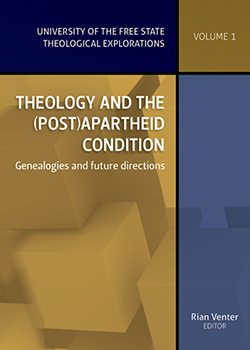Latest News Archive
Please select Category, Year, and then Month to display items
14 May 2024
|
Story ANTHONY MTHEMBU
|
Photo Supplied
 Contemporary artist Ibrahim Mahama engaging with students during his visit to the Department of Fine Arts at the University of the Free State (UFS).
Contemporary artist Ibrahim Mahama engaging with students during his visit to the Department of Fine Arts at the University of the Free State (UFS).
Ghanaian contemporary artist, Ibrahim Mahama, visited the Department of Fine Arts at the University of the Free State (UFS) to share insights with staff and students during his stay in the country.
Dr Adelheid Von Maltitz, Senior Lecturer in the Department of Fine Arts at the UFS, highlighted the significance of Mahama’s visit which took place from 21 to 28 March 2024, marking the first instance of such interaction between a Fine Arts department in South Africa and Mahama. She remarked, “It is truly astounding that a person of his calibre dedicated time to focus on our department, and I believe this has catalysed a positive shift within our department.”
Mahama’s impactful presence at UFS
Dr Von Maltitz emphasised that Mahama’s visit aimed to offer staff and students a glimpse into his artistic process and mindset. During his time at the UFS, Mahama, who was virtually overseeing his latest recent large-scale artwork titled Purple Hibiscus, which involved wrapping the Barbican Centre in London, engaged extensively with staff and students from the department about their research. He shared insights into his creative journey, presented select works, and conducted critique sessions with fourth year and postgraduate students, among other activities. Dr Von Maltitz believes this interaction, particularly with students, has significantly bolstered their confidence as aspiring artists, preparing them for professional endeavours.
Broader implications and future prospects
Mahama’s visit not only energised the department’s academic environment but also holds broader implications. Dr Von Maltitz asserted that it will solidify the department’s identity nationally and create avenues for students to pursue residencies in countries like Ghana. Therefore, maintaining a fruitful relationship with Mahama remains a priority for the department.
Reflecting on the visit Dr Von Maltitz concluded, ‘’the key takeaway, especially for the students, was witnessing the potential of their works within the broader South African and international contexts. “
UFS research project aims to stimulate reflection on theological studies
2017-06-20

The first book in the ‘UFS Theological
Exploration’ academic series, called Theology
and the Post(Apartheid) Condition, has just
been released.
Photo: Supplied
The first study book with the title Theology and the Post(Apartheid) Condition, which is part of a new academic series by the Faculty of Theology and Religion at the University of the Free State, is now available. Volume 1, compiled by Professor Rian Venter as editor, is the first book in the ‘UFS Theological Exploration’ academic series, which the faculty plans to release.
Transformation
Professor Venter says the transformation of processes and practices in communicating and creating knowledge has become an urgent task for public universities in a democratic South Africa. Much reflection has already gone into the methods and scope of transformation in higher education.
Although the faculty has done work on the implications of this for theology, there is one area of investigation that has not received much attention. It concerns the role of theological disciplines such as Old and New Testament, Missiology and Systematic Theology and Practical Theology, and specifically the relationship between academic disciplines and societal growth. The book focuses on these challenges and contains the intellectual undertakings of the contributors who are all lecturers, research fellows and post-graduate students linked to the faculty.
The questions
The key questions addressed are: what are the contours of the (post)apartheid condition and what are the implications for responsible discipline practices in theology. Professor Venter says the chapters in the book are logically arranged and moves from wider to more specific concerns. The first three chapters suggest broad perspectives on the challenges for theology in higher education, chart the changes, and make some suggestions for the future.
A dynamic field of study
The book states that theology has already experienced profound and radical changes over the past decade, which is known to us. All the chapters demonstrate these fundamental shifts, which have taken place in all theological sub-disciplines. Professor Venter says the contributions in the book illustrate that theology is a dynamic field of study, and is pursued with enthusiasm and commitment. Not all disciplines in theology are investigated for the book. However, the studies reflect the interests of the theologians in the Faculty of Theology at the UFS. Professor Venter hopes that the volume might stimulate further reflection of a similar nature by other theologians.
New insights
Through the ‘UFS Theological Exploration’ research series, the faculty hopes to stimulate new insights and new developments in academic progress and overall human growth. Series editor Professor Francois Tolmie says it is a fact that strong university research is necessary to achieve academic progress and advance human prospering. He says the faculty's research series will make a valuable contribution to these causes. Professor Tolmie says the ‘UFS Theological Explorations’ contains research of the highest academic standard which has been peer-reviewed to make significant educational contributions to core theological issues in South Africa and overseas.